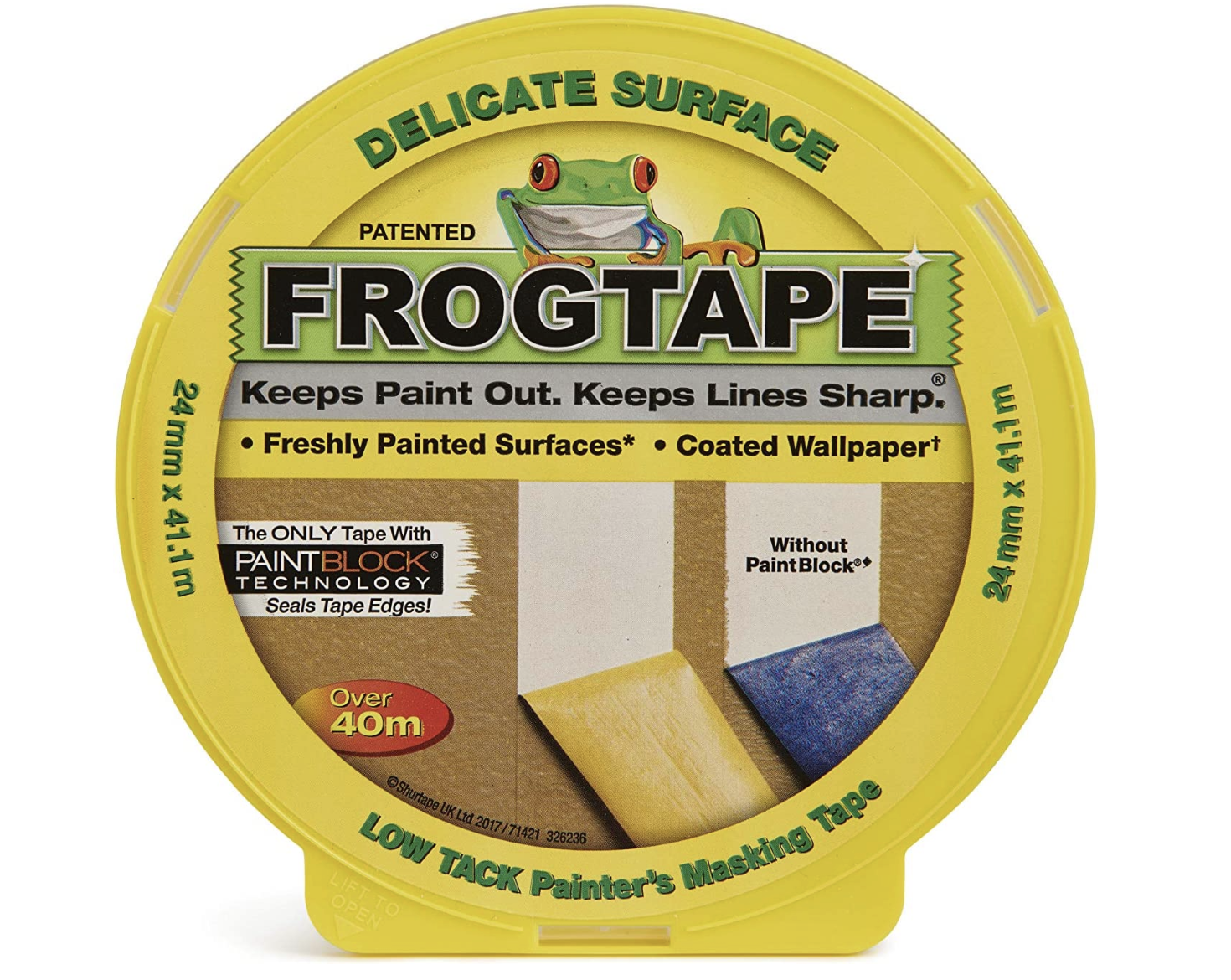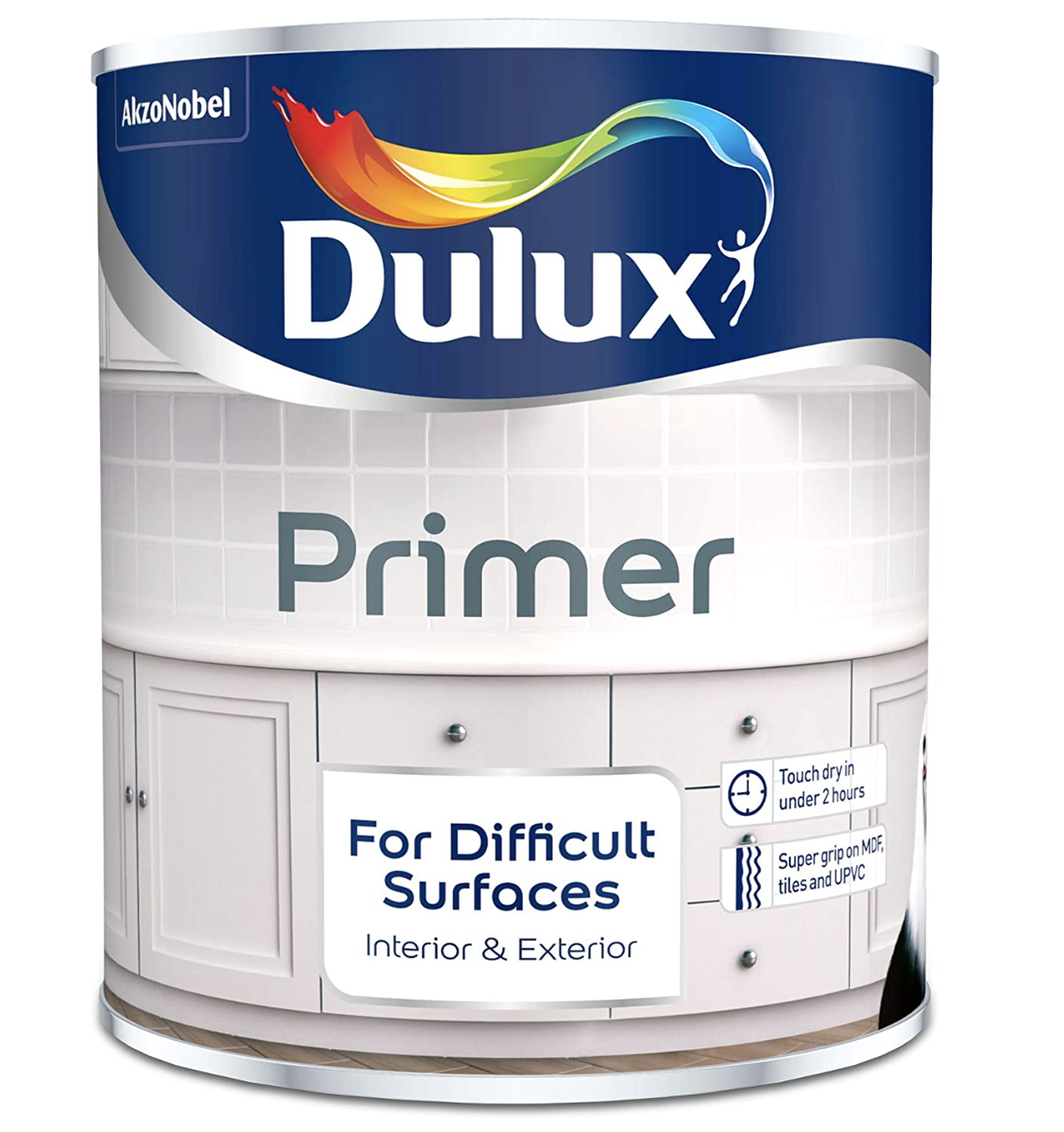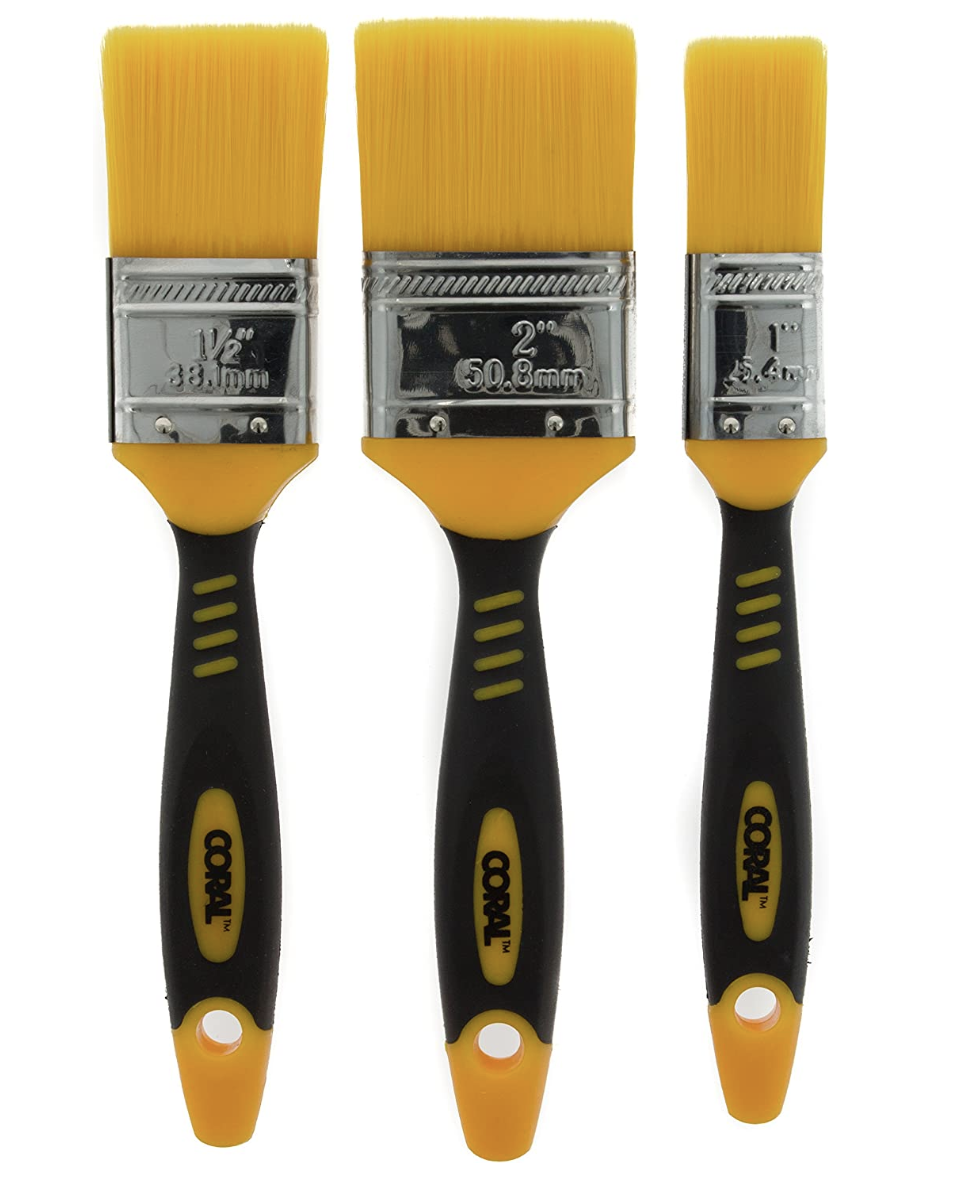The only 3 expert tips you need for how to paint laminate surfaces so as to easily refresh your decor
Experts reveal the secrets for how to paint laminate surfaces so as to give your home a stylish and affordable revamp
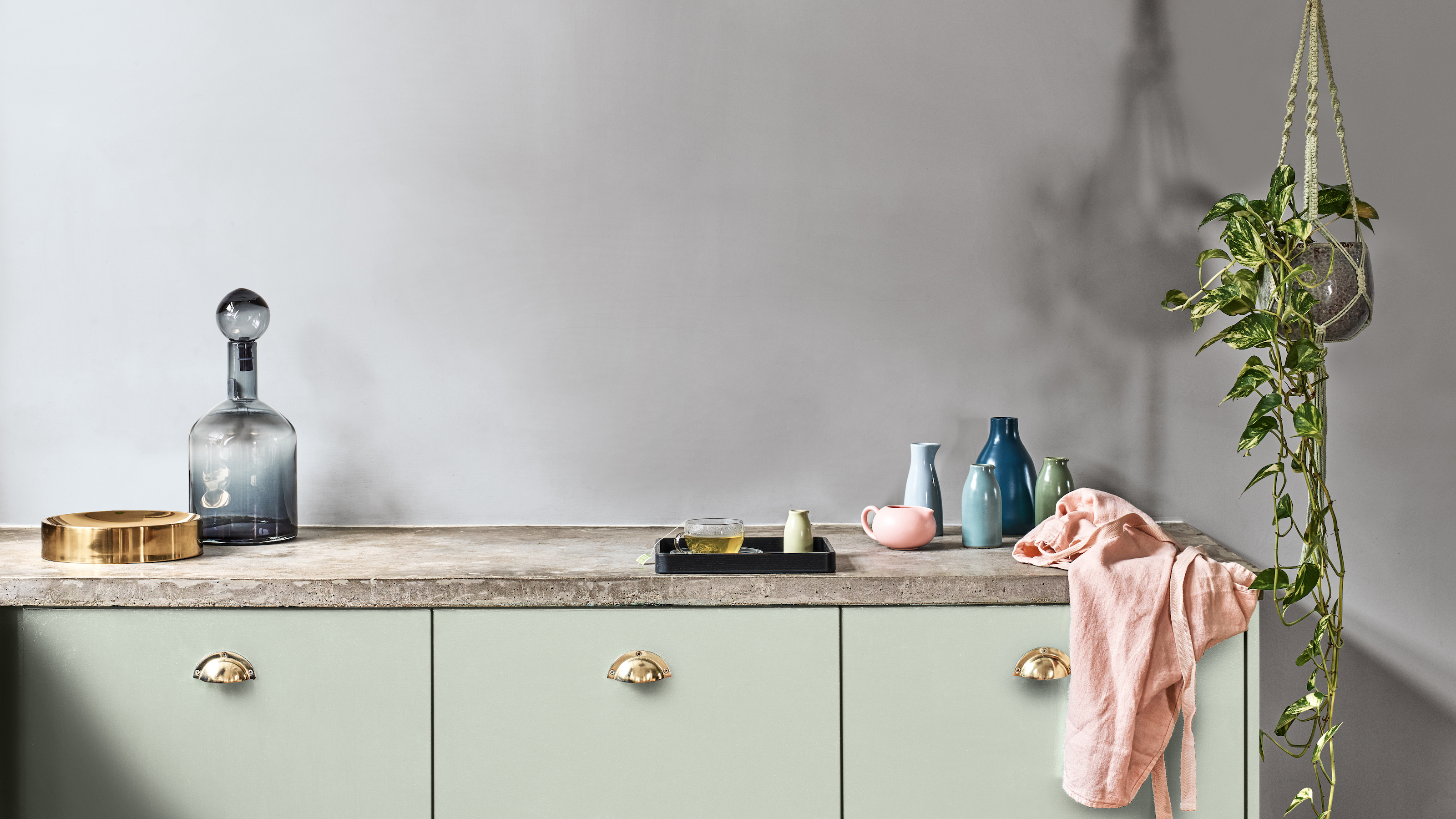
The Livingetc newsletters are your inside source for what’s shaping interiors now - and what’s next. Discover trend forecasts, smart style ideas, and curated shopping inspiration that brings design to life. Subscribe today and stay ahead of the curve.
You are now subscribed
Your newsletter sign-up was successful
We talk a lot about weekend overhauls here at Livingetc. From small jobs that make big differences to licks of paint that transform a space, there is a lot you can do with to make you home feel refreshed. Knowing how to paint laminate surfaces is key to this spirit of reinvention. If you've inherited an unattractive kitchen in a new home - or want to update old laminate cabinets or furniture - then these expert tips for painting laminate surfaces, you can transform your home without the high price tag.
With patience, planning and paint, you can forget ripping out a decent but dated kitchen or bathroom, or replacing ugly pieces with new. This prevents waste, saves a packet and provides a sense of satisfaction when you stand back and admire your handiwork.
'If someone told you that you could have a new modern kitchen for the cost of a couple of cans of paint and a weekend of your time, you would probably laugh,' says Marianne Shillingford, creative director at Dulux. 'Yet with the development of special primers for difficult surfaces, it has never been easier to revamp laminated kitchen units in your favourite colours and finishes.'
If you love an IKEA hack or want to preloved pieces, discover what experts suggest.
3 tips for painting laminate surfaces
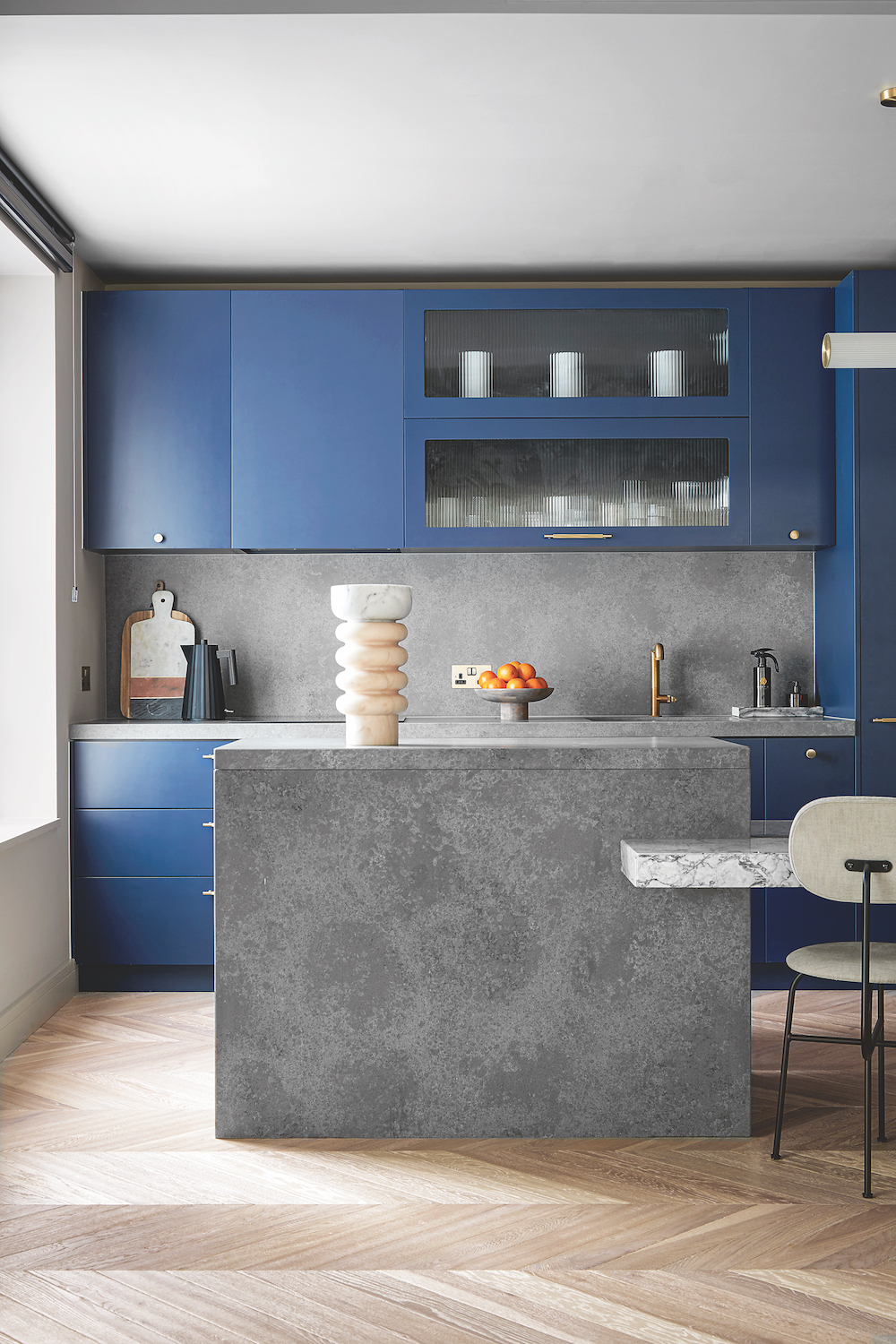
'Melamine furniture and kitchen cabinets are the main type of laminates that can be painted easily,' says Marianne Shillingford, creative director at Dulux. 'Synthetic laminate floors and work surfaces get too much wear for a painted finish and won’t last.'
'However, with the right colour and a change of handles, a cheap set of laminated MDF drawers can look like something your bought at a boutique rather than a bargain basement.
'Colour is key to a premium look no matter what you are painting and rich shades that have an interesting back story like DH Oxford Blue or Red Ochre make pieces stand out and memorable.'
The Livingetc newsletters are your inside source for what’s shaping interiors now - and what’s next. Discover trend forecasts, smart style ideas, and curated shopping inspiration that brings design to life. Subscribe today and stay ahead of the curve.
What you'll need:
Dust sheets
Sugar soap (wear rubber gloves while using) and sponge
Good quality 2” acrylic paint brush
Small radiator roller and good quality sleeves for gloss finishes
Primer for Difficult Surfaces - our editor prefers this primer from Amazon.
Eggshell paint in your favourite shade
Fine surface sandpaper and dusting brush
Masking tape
Screwdriver and allen key for removing doors, drawers and handles
The products our editor swears by
1. Clean the surface thoroughly
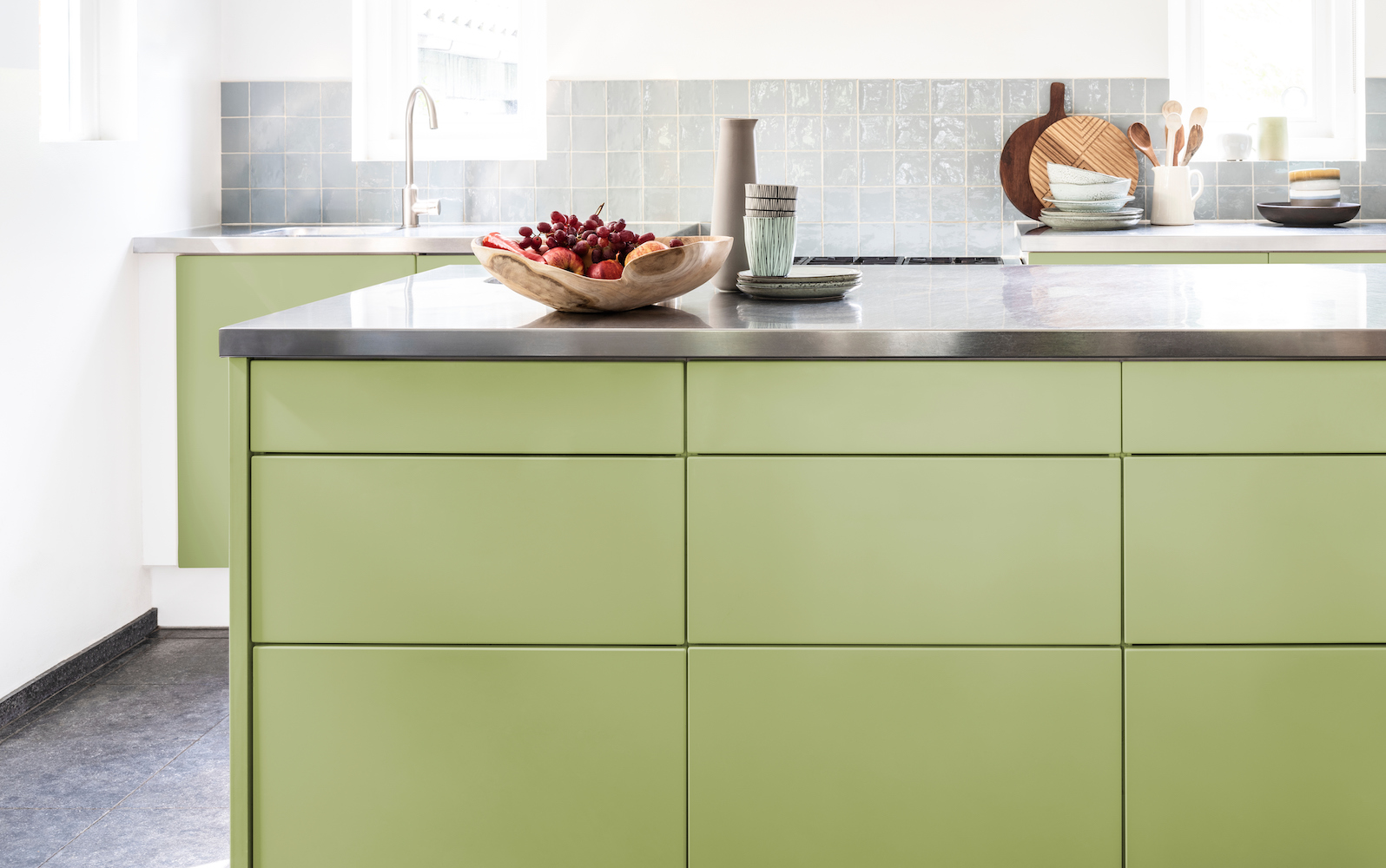
Laminate kitchen cabinets can collect all sorts of surface grime, such as oil, dust and spills. Removing this and cleaning the surface thoroughly is important to the overall finish of whatever you're painting.
When it comes to how to paint kitchen cabinets, it's usually easier to take doors and drawer fronts off of the carcass to clean and coat them properly. Remove the handles too and consider replacing them for a further upgrade.
'You must prepare the surface by first cleaning with sugar soap, wiping off the residue with clean water and letting it dry before the next stage,' says Marianne Shillingford, creative director at Dulux. 'Laminate is a tough, smooth, non-porous surface and so it’s difficult to get paint to stick to it without the right products and processes.'
2. Sand the surface gently
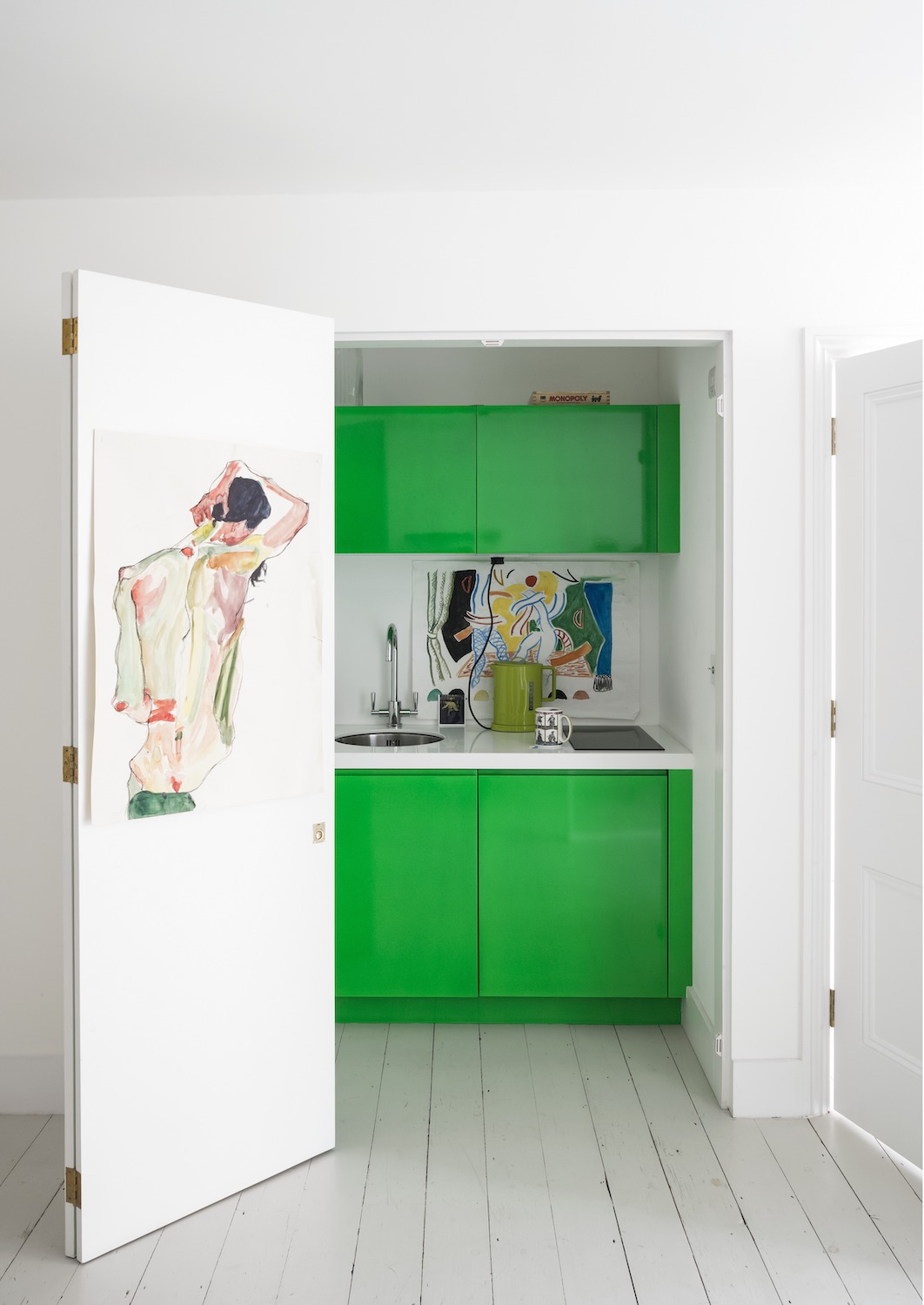
Any surface that you're painting needs a 'key', so that the paint can stick to it. This is why laminate can be tricky to paint if you don't do things properly, as it's generally super-smooth and shiny. It's also why you usually need to sand a surface. If you're replacing the handles, fill the holes first.
'Sanding laminate with a 150-220 grit sandpaper is the best way to get the primer and paint to adhere properly,' says Ryan Godden at Wood Finishes Direct. 'Be extremely careful when sanding any laminate though.
'You do not want to tear the laminate off as otherwise you will see a difference in the “texture”, if you sand down to the MDF below. So be careful not to over-sand the surface.'
3. Apply a specialist primer or paint
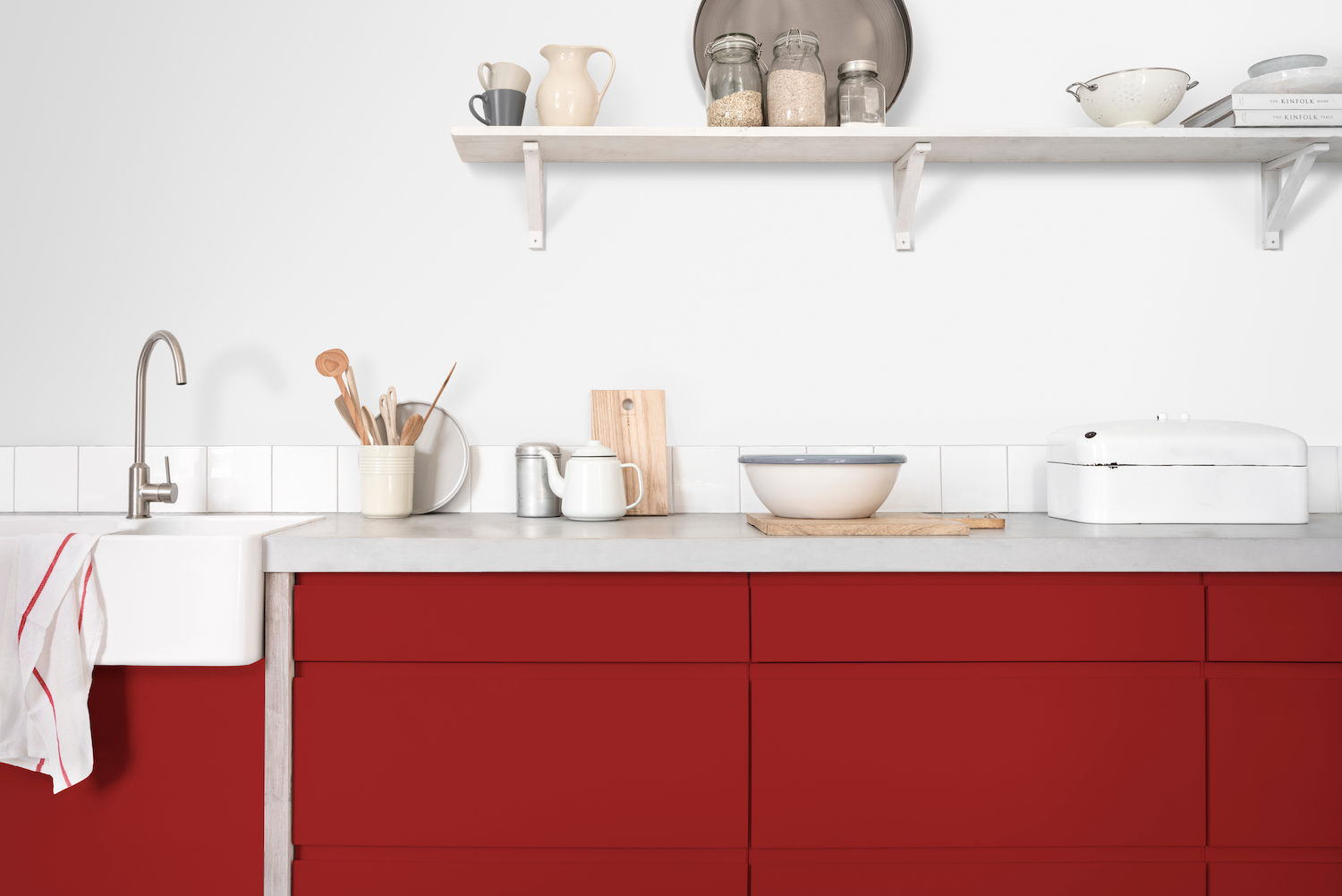
'You can use Dulux Quick Drying Gloss, Satinwood or Eggshell as a topcoat but it’s difficult to get paint to stick to it unless you use a special primer, that has been designed for difficult surfaces,' says Marianne Shillingford at Dulux.
'If you attempt to paint straight onto the surface, the paint will not stick to the surface properly and will eventually flake and peel off. So apply a coat of Dulux Primer for Difficult Surfaces.
'First, mask off hinges and interior edges of the units then lay the dust sheets. Use a good quality synthetic paint brush and a small radiator roller with a sleeve designed for gloss and eggshell finishes.
'You can use the brush for mouldings and painting up to edges and the roller for getting a good even finish in double quick time on the flat surfaces.'
Lightly sand the primer once it's dry and remove the dust, before painting the surface with two coats of your favorite top coat. This is ideal if you want to match laminate cabinets with the color of your walls, or have a particular shade made up.
Alternatively, you could use a specialist multi-surface paint, however the color choice may be limited.
'Laminate is essentially a plastic coating so it will stop liquids from penetrating the surface,' says Ryan at Wood Finishes Direct. 'There are specialist multi-surface paints from brands such as Bedec that don't require primer, as they are self-priming. Although, we would always suggest a patch test first and follow the manufacturer's instructions.'
Jacky Parker is a freelance lifestyle journalist and writer, producing a wide range of features for magazines and digital platforms. She has written for Livingetc and its sister titles, Homes & Gardens and Country Homes & Interiors for more than 15 years, both as a freelance contributor and as Acting Digital Editor and Acting Style Content Editor, regularly reporting on the latest interiors, gardens and wellness inspiration, speaking to experts in their respective fields, and discovering the best tips.
Jacky has also written for other publications, including Sunday Times Style, The Telegraph, Architectural Digest, House Beautiful, ELLE Decoration, Red, Grand Designs and more.
